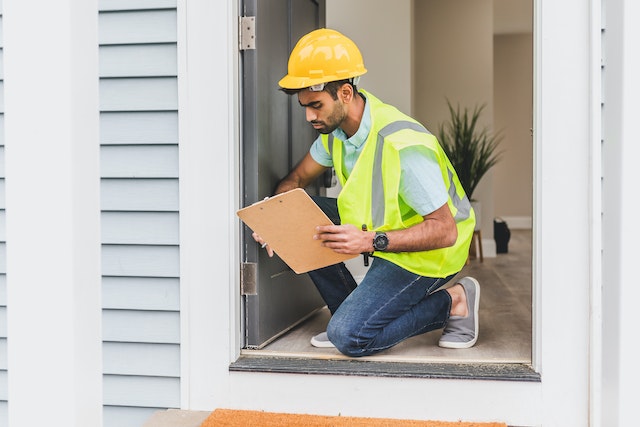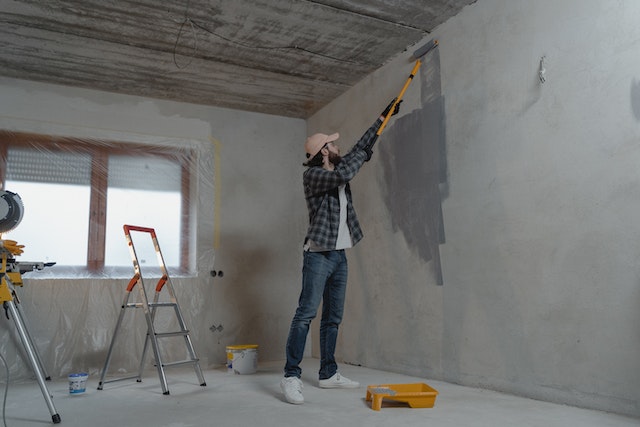No landlord wants to have to deal with tenant damage to their rental property. That’s why, with the right precautions and effort, landlords can prevent tenant damage from occurring in the first place.
In this article, we’ll discuss ways to prevent tenant damage, such as setting up security deposits and creating strong lease agreements.
Tips to Prevent Tenant Damages to Your Rental Property
To help protect your rental property from tenant damage, there are some steps you can take. These include:
Create a Solid and Detailed Lease Agreement
Having a comprehensive lease agreement is one of the best ways to avoid tenant damage. Establishing these terms upfront allows tenants to understand their responsibilities, and allows you to build better landlord-tenant relationships.
When drafting the lease agreement, you should include specific clauses related to property damage. For instance, you should include rules related to smoking, growing plants, and any other activities that are likely to cause damage. You should also include a clause that clarifies who’s responsible for paying for repairs if damage occurs.
Conduct Thorough Tenant Screening
Tenant screening is one of the best preventive measures you can take to protect your property, as it helps ensure you’re selecting the best possible tenant for your rental.
When screening tenants, make sure to check their rental history, and ask for references from previous landlords, employers, and other relevant sources. Knowing the tenant’s background will help you identify any potential red flags that could lead to damage, which can help you decide if a potential tenant is a good fit for your rental property.

Get an Insurance Policy
Getting an insurance policy is another way to protect your property. It can help cover potential damage from fires, burglaries, and other unexpected events. You should also talk to your insurance provider about additional coverage options.
When speaking with an insurance representative, don’t hesitate to ask questions. You should know which types of coverage are available. Some providers may offer additional options, such as flood insurance.
Educate Tenants on Property Care
It’s crucial to educate tenants on adequate property care. Make sure they’re aware of the fire safety protocols in the building, and remind them to keep the property clean and well-maintained to help deter any potential vandalism or theft.
Let tenants know they should remain aware of their surroundings and report any suspicious activity. You should also provide them with the contact information of any maintenance staff or security personnel that are available in case they need help.
The best way to help tenants maintain your property is to partner with a property manager who’s available 24/7. A professional property manager will be able to monitor the property and respond quickly to any issues.
Perform Regular Property Inspections
Regular property inspections should be an essential part of any landlord’s strategy to protect their rental property. Scheduling regular inspections allows landlords to check for any signs of damage. Inspect every area of the property and take note of any potential issues, such as fire hazards or mold.

During these inspections, you should document any repairs or maintenance that are needed, taking photos and videos of the property when appropriate. Keep a network of contractors on hand for when you need to have repairs done quickly.
Enforce Penalties
Enforcing penalties, such as fines, for tenant damage is a crucial part of protecting your investment. You should include a clear and concise clause regarding penalization in the lease agreement.
Make sure that you assess the severity of the issue before deciding on a penalty, as it should be appropriate to the offense. Additionally, make sure that you document any fines or penalties you impose, as they could act as evidence in the case of any legal conflicts.
Ask for a Security Deposit
You should make sure to include a clause in the lease agreement that requires a security deposit. That way, if the tenant does cause any property damage, you can make deductions to the security deposit to cover the cost of repairs.
Invest in Upgrades
It’s important to remember that property damage might be caused by things such as wear and tear, and that tenant damage is not always intentional. To prevent accidental damage, consider installing security measures and durable, high-quality materials like stainless steel appliances and hardwood floors.
Additionally, it’s wise to inspect the property regularly and ensure that it is being taken care of properly. This includes checking for signs of mold or other water damage, as well as inspecting the walls and carpets for any spots or stains.

Bottom Line
If a landlord wants to turn their rental property into a successful investment, then taking care of the property is essential. Regular maintenance and inspections will help ensure the property is in good condition and any potential problems are dealt with quickly.
It’s also wise to partner with a reliable property management company like East Bay Property Management, as they can help reduce your workload, provide professional advice, and ensure your rental property is running efficiently and profitably.






